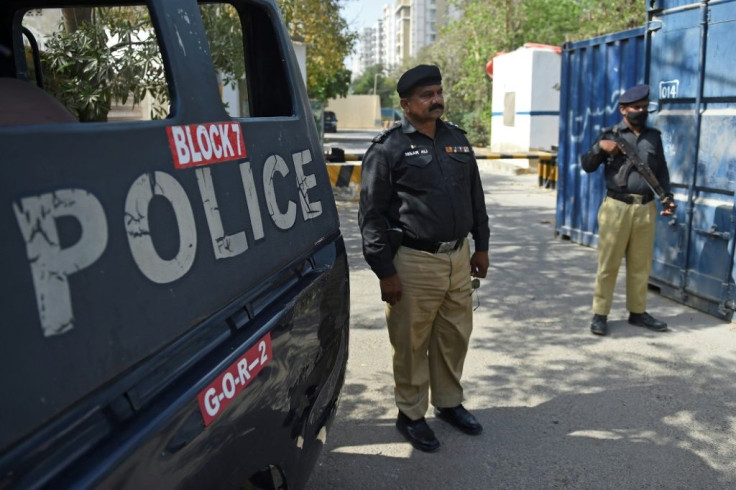Pakistan Orders Temporary Social Media Shutdown After Violent Protests
The Pakistan government imposed an hours-long shutdown of social media and instant messaging platforms on Friday, after days of violent anti-France protests.
The move came after French nationals and companies in Pakistan were advised by their embassy to temporarily leave the country, in the wake of rallies led by an extremist party that paralysed many cities and left four police officers dead.
The Pakistan Telecommunication Authority (PTA) cut Twitter, Facebook, WhatsApp, YouTube and Telegram until late afternoon on Friday to "maintain public order and safety", following a request by the Interior Ministry.
Political parties frequently use social media to rally supporters, and the announcement came just before Friday prayers, which usually draw huge crowds to mosques where firebrand sermons have in the past catalysed protests.
Pakistani authorities have used strategic social media bans and cuts to mobile services in the past in an attempt to head off major protests.
Thousands of Tehreek-e-Labbaik Pakistan (TLP) supporters spilled onto the streets in cities across the country on Monday after their leader was detained following his calls for the expulsion of the French ambassador.
Pakistan Prime Minister Imran Khan said Friday that four police officers had been killed and more than 600 injured in clashes.
"These past few days have been chaotic," said Mariam Jamal, who works at a digital marketing company in Lahore.
"First we couldn't get to work on time because of the traffic jams and road blocks, and now we can't really do much because social media is blocked."
The social media ban affected many Pakistanis already suffering from the fallout of the Covid-19 pandemic.
In the northwestern city of Peshawar, Eqtedar Ahmad told AFP his work as a doctor at a private hospital had been disrupted.
"We use WhatsApp for routine business -- including sending lab reports to patients -- and this current suspension has affected us severely," he said.
Wamiq Haris, a 30-year-old who depends on social media to run his food delivery service in Karachi, the country's largest city and economic hub, said orders had plummeted.
"Every day we face a new challenge for our business," he told AFP.

Protests had been cleared from most cities by Friday, but in Lahore hundreds of TLP supporters continued a sit-in at a religious school and party headquarters.
More than 200 people have been arrested, police sources said, while the TLP said some of its supporters had died.
Farhan Ahmed, a driver in Lahore, said the government had blocked WhatsApp to prevent people from sharing information about how much the TLP "have suffered" in protests.
"What is being done to them is not good... the government doesn't want us to talk about what they have done," he said.
Anti-French sentiment has been festering for months in Pakistan since President Emmanuel Macron threw his support behind a satirical magazine's right to republish cartoons depicting the Prophet Mohammed -- an act deemed blasphemous by many Muslims.
On Thursday the French embassy advised all its citizens and companies to pull out of Pakistan, citing "serious threats to French interests".
A French national living in Islamabad who asked not to be named told AFP he would not adhere to the warning.
"With the (coronavirus) situation, we do not move much from the house. Schools are closed, we keep a low profile, so this does not really change much," he said.
Security was this week increased around the embassy, which is inside a guarded diplomatic enclave closed to the public.
Khan's government has struggled to bring TLP to heel over the years, but this week announced an outright ban against the group, effectively labelling it a terrorist outfit.
The party is notorious for holding days-long, violent road protests over blasphemy issues, causing major disruption to the country.
Blasphemy is a hugely sensitive issue in conservative Pakistan, where laws allow for the death penalty to be used on anyone deemed to have insulted Islam or Islamic figures.
Francophobia erupted in autumn last year when the satirical magazine Charlie Hebdo republished cartoons of the Prophet Mohammed.
Macron's subsequent defence of free speech triggered anger across the Muslim world, with tens of thousands in Pakistan, neighbouring Iran and other Muslim countries flooding the streets and organising anti-French boycotts.
© Copyright AFP 2024. All rights reserved.







